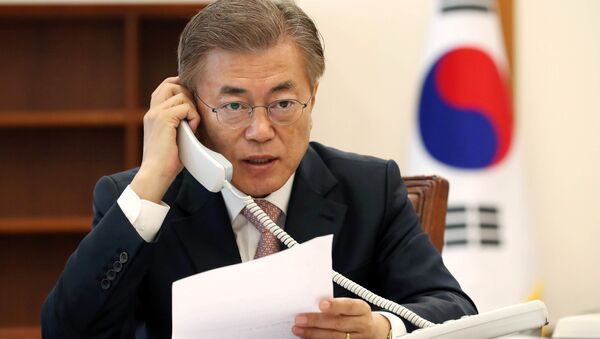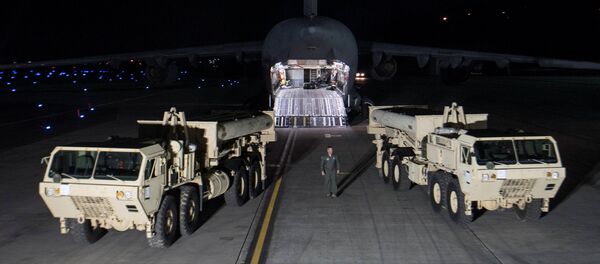On Tuesday, Blue House spokesman Yoon Young-chan confirmed that the South Korean Defense Ministry had deliberately misled the new president about the missile defense system.
"The Blue House has confirmed that the Defence Ministry has intentionally dropped the introduction of four more launchers in its report," Yoon said.
Radio Sputnik’s Loud and Clear spoke with China and Korea expert Keith Bennett about the expansion and how it may impact the US’ relationship with South Korea.
Bennett said that there’s "no love lost between this set of political figures in South Korea and the right wing in the US,” as Moon once served under another progressive administration that then-US President George Bush called the "Taliban in the Blue House."
He suggested that the presence of THAAD "shows that, despite the fact that South Korea has a very progressive economy, politically it’s still lacking some of the major attributes of an independent sovereign state."
"It’s the case that in the event of conflict, the supreme command of South Korean armed forces will not be vested in any Korean person, but in the United States," he said.
Washington increased the pace of THAAD’s deployment in the time between the impeachment of former President Park Geun-hye and the election of Moon, and Bennett believes this was done to ensure the system was in place before Moon could block it.
He said the move "indicates the complete lack of respect that the United States has for South Korean sovereignty, in that it was pushed through when there was a caretaker government, and knowing full well the almost certain outcome of the presidential election was going to be the election of a president that has spoken out against THAAD."
In response to Moon’s probe, US Defense spokesman Capt. Jeff Davis told reporters, "We continue to work very closely with Republic of Korea government and we have been very transparent in all of our actions throughout this process."
Bennett asked rhetorically, "Well if they’ve been very transparent in the process why does it come as a shock to the South Korean president?"





